Chasing Amazing’s ongoing look back at some of Spider-Man’s most important underworld stories is expanding its horizons in this latest entry. This time around, we’re leaving the comfortable confines of the 616 universe and traveling the Multiverse all the way over to Ultimate Spider-Man.
After just introducing the “Ultimate” concept as part of the seven-part origin retelling that was the first arc of Ultimate Spider-Man, Brian Michael Bendis and Mark Bagley famously began putting their own unique spin on Ultimate Peter and his supporting cast with “Learning Curve” (Ultimate #8-12).
For the purposes of the “Gangland” featurette, “Learning Curve” is important because it marks the first appearance of the Ultimate Universe’s Wilson Fisk, aka the Kingpin, arguably Marvel’s greatest mob boss. But what elevates “Learning Curve” into the pantheon as one of the greatest Spider-Man stories ever told (regardless of Multiversal designation) is the fact that Bendis and Bagley use their characterization for Kingpin as a catalyst for Peter’s own growth and evolution as a hero and a human being.
“Learning Curve” might be my favorite Ultimate Spider-Man arc (a few months ago, I talked about Ultimate #13, which functions as an epilogue/coda to the story and is unquestionably my favorite “standalone” issue in the series). As great as Ultimate’s first storyline ended up being, it’s patently clear that Bendis was being a little too careful in terms of honoring the original Stan Lee/Steve Ditko origin story, while also trying to update it and make it more contemporary. I think Bendis did an awesome job, because his decompressed storytelling allowed characters like Uncle Ben to exhibit real personality, thereby upping the tension when bad things inevitably happen. But it’s still just a glorified reboot.
“Learning Curve” makes it obvious from the very first chapter that this is the storyline where Bendis starts to tell HIS story HIS way. A lot of this is done via subtle but significant changes to classic characters like Aunt May, J. Jonah Jameson, Fisk and Mary Jane. And then there are the not-so-nuanced deviations like Peter attempting to sell freelance photos to the Daily Bugle only to be hired as a wunderkid web editor for the paper’s online site.
Peter’s job at the paper gives him an opening to start learning more about New York’s criminal element, thereby giving him more ammunition for his secret identity as a costumed vigilante/crime fighter. Bendis takes some of Peter’s core characteristics from Lee/Ditko days – his naiveté and his impulsiveness – and fleshes them out in “Learning Curve” in a way that yields some engrossing results for the reader.
He gets his first lesson in the ways of the “real world” when he researches Fisk, who in the Ultimate Universe, is one of New York City’s business titans a la Donald Trump (with obvious connections to organized crime). Peter asks the Bugle’s top reporter Ben Urich why the paper has never attempted to taken Kingpin down and Ben gives Peter his first life lesson: they did until he went ahead and purchased a controlling interest of stock in the publication.
Peter’s inability to just accept “that’s the way it has to be,” puts the character in mortal danger, first when he impetuously attacks Fisk’s henchmen, the Enforcers, fully expecting to find the Kingpin in the flesh at their hideout; and later when he crashes one of Fisk’s social galas.
Peter is inevitably trashed by a combination of Electro and later Fisk himself – leading to the absolutely hilarious visual of Spider-Man sliding down the front of Kingpin’s skyscraper a la one of those Garfield suction cup windshield ornaments. While he fortunately lives to fight another day, Peter quickly realizes that his approach in subduing the Kingpin was horrifyingly unsophisticated. Rather than just busting into his home, swinging his fists at whoever gets in his way, Peter’s defeat helps him understand that a threat as big as the Kingpin requires a very intricate, well-thought out plan.
In a fun little twists that probably dates Bendis’s childhood a bit, Peter has his eureka moment while sitting in class hearing about former President Richard Nixon. Nixon, of course, famously resigned from the presidency in the mid-1970s when audio tapes of him discussing the break-in at the Watergate hotel (to steal intel from his political opponents). The teacher asks why someone as powerful but paranoid as Nixon would tape all of his conversations which leads to Peter realizing that the key to attacking Kingpin is to use his own hubris and megalomania against him.
So rather than make another frontal assault, Peter, as Spider-Man, goes into stealth mode in order to obtain video footage from the Kingpin’s complex (which, presumably contains damning evidence connecting him to criminal activity).
Because this is still a superhero comic, there is still a physical showdown between Spider-Man and the Kingpin’s goons. But Bendis crafts the story in a way that demonstrates how Peter’s thoughtfulness and strategic approach has boosted his confidence, thereby allowing him to use his brains to defeat the Enforcers and Electro, setting the stage for one final confrontation with Fisk.
Spider-Man’s showdown with Fisk in Ultimate Spider-Man #12 may go down as the greatest Spider-Man/Kingpin moment in their long history with each other. And what makes it so memorable is just how gloriously juvenile the whole sequence ends up being.
Once he’s face to face with the Kingpin again, Spider-Man boasts that he defeated Fisk’s hired goons and then proceeds to bust out a (physical) list of “you’re so fat” jokes to lampoon the rotund mob boss. Spider-Man’s insults naturally drive Fisk insane with rage, which allows Spidey to use his speed and agility to stay one step ahead of Kingpin and defeat him. Spidey wasn’t going to be a window ornament again.
It’s scenes like this one that really exhibit why Marvel has spent so much time trying to regress Peter into more of a teenager in both the comics, and reportedly for his next movie. Granted, when Peter has his juvenile moments in the comics today, they are not always effective because they seem to fly in the face of the character’s growth over the years. But in Ultimate Spider-Man, it works perfectly because Peter is back to being a teenager again.
It’s also a really unique depiction of how Peter is transformed by being Spider-Man. Ultimate Spider-Man nails the characterization that Peter is more of a socially awkward outcast than a geeky nerd. But once he puts on that mask and costume, Peter gets a boost of confidence and ego, allowing him to disarm his opponents with intelligent quips and some low-brow jabs. For the record, I don’t think a single Spider-Man movie, by Sam Raimi or Marc Webb, has truly nailed the dichotomy of the character the way Bendis does in Ultimate, so hopefully BMB has some say in the next big screen iteration (he probably won’t).
To drive home “Learning Curve’s” larger moral one more time, Bendis/Bagley show the Kingpin post-exposure, talking with his lawyer about what his next steps might be. Fisk’s lawyer assures him that he’ll recover, despite the fact that he was caught on tape crushing a man’s skull between his hands.
In other words, someone with the clout and influence of Kingpin will inevitably resurface, regardless of the crimes he commits. And no matter how hard Peter tries to use his powers responsibly and eradicate crime in New York City, like cockroaches, crooks like Fisk will always crawl out of the woodwork when you’re not looking for them. It’s a bit of meta-commentary from Bendis about how most villains are portrayed in comics, but it’s also an incredibly valuable lesson for a hero that feels obligated to do right in the world, but will rarely ever get his wish without conditions and caveats.

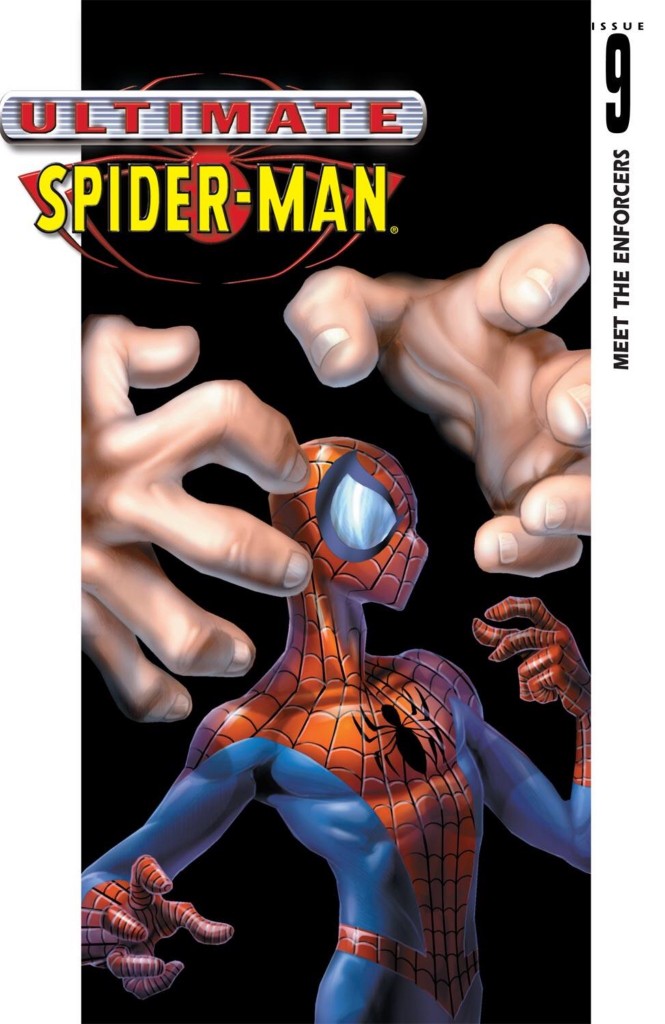
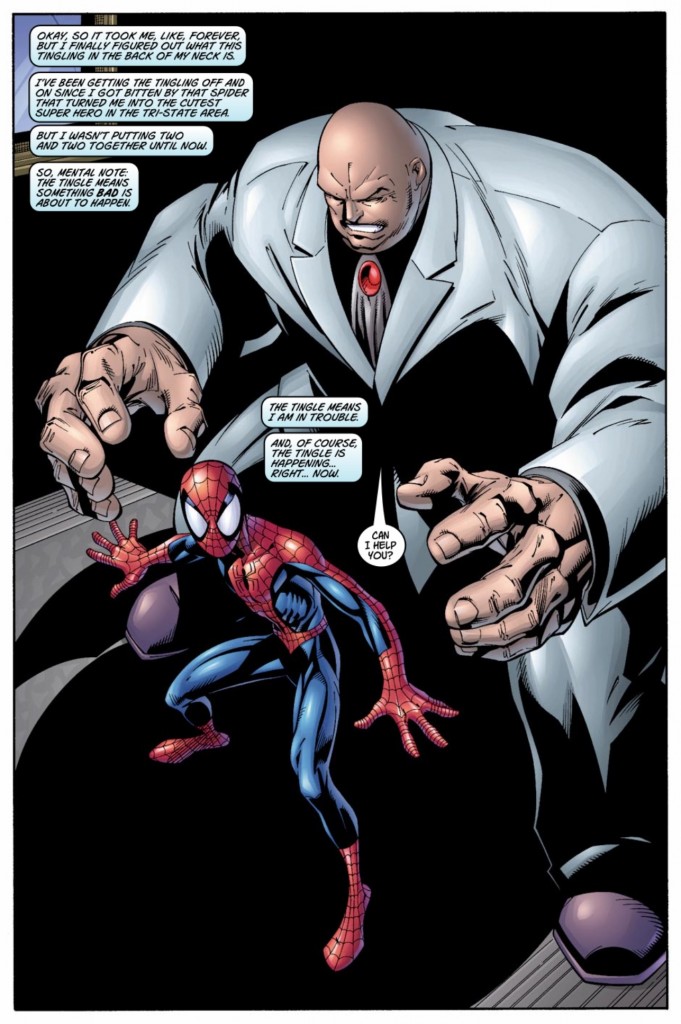
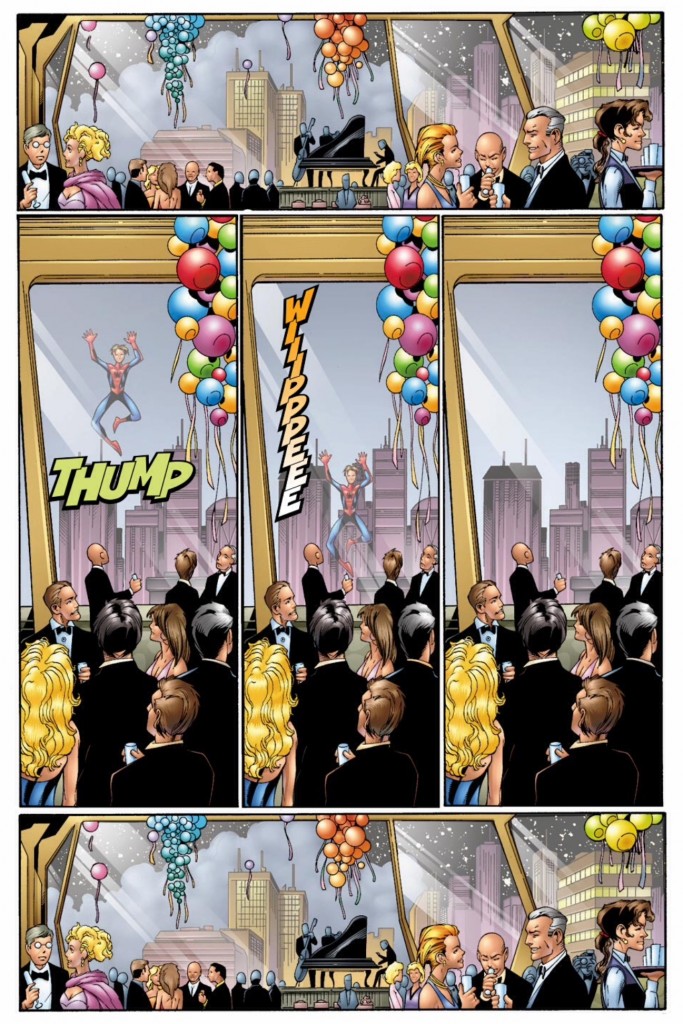
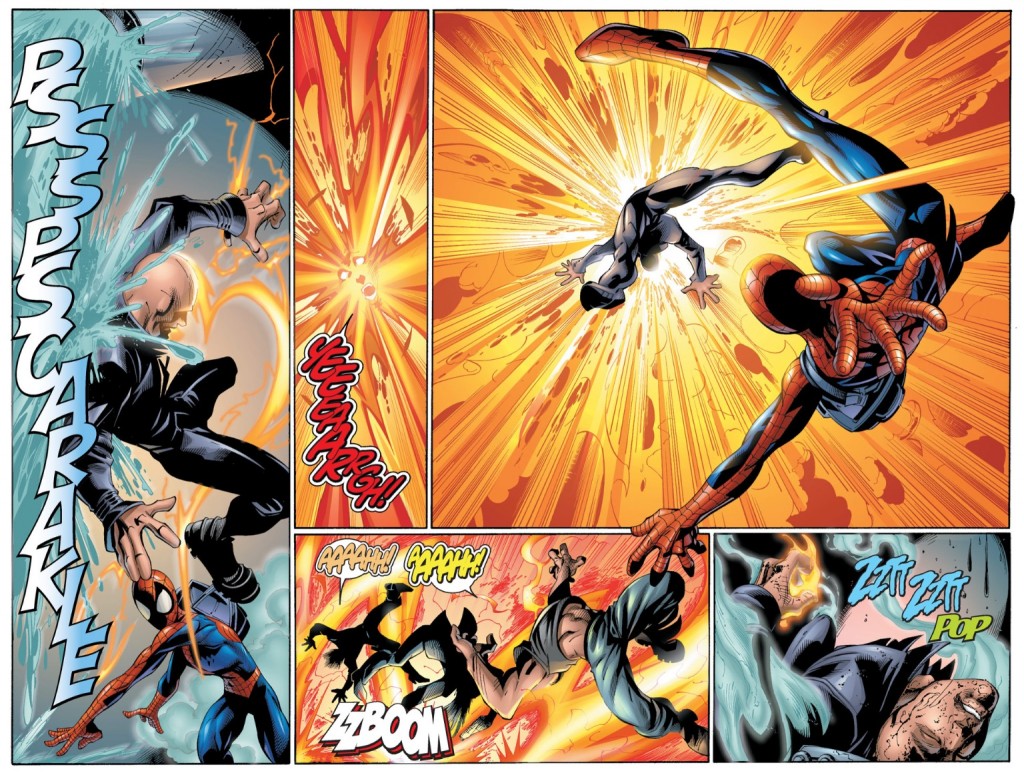
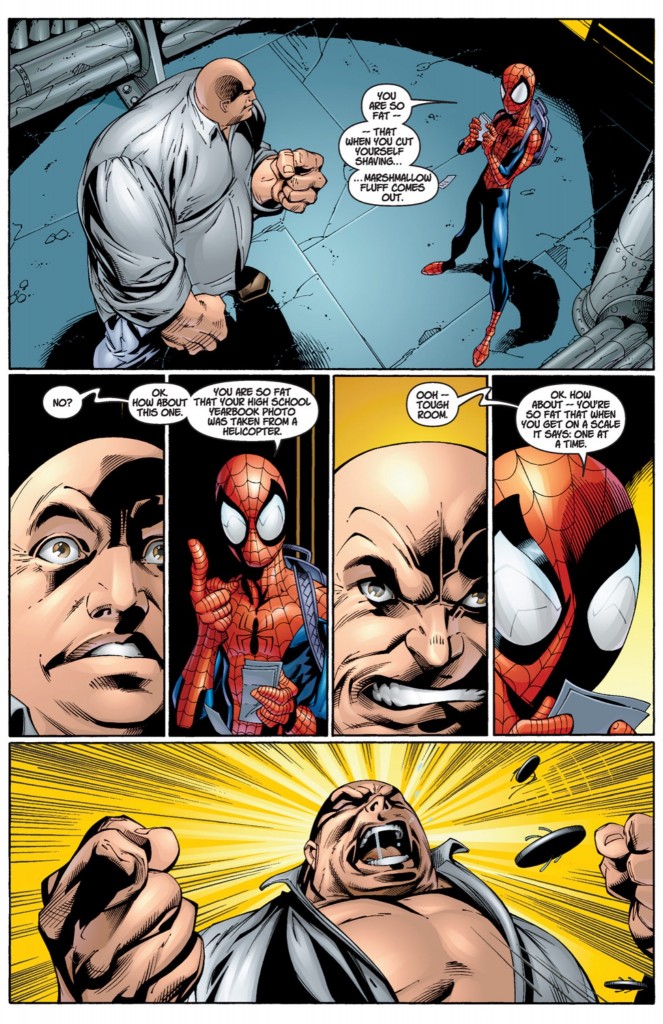


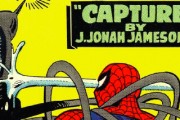
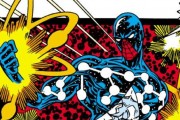
Even just glancing over the images you’ve chosen for this piece brings me the greatest feelings of nostalgia. I can’t tell you how many times I’ve read this particular storyline, I know it must be dozens and dozens. Ultimate Spider-Man, for a long time, balanced Peter’s crime-fighting life and social life in ways that no Spider-Man comic has ever done and made him smart in a manner that doesn’t rely on him inventing some new doodad that would instantly take down his villain. I love reading a Peter that is constantly underwater, completely out of his element, who just barely manages, often through pure luck, to come out alive/successful in his different dealings with villains. Guess I know what I’m going to be reading this week!